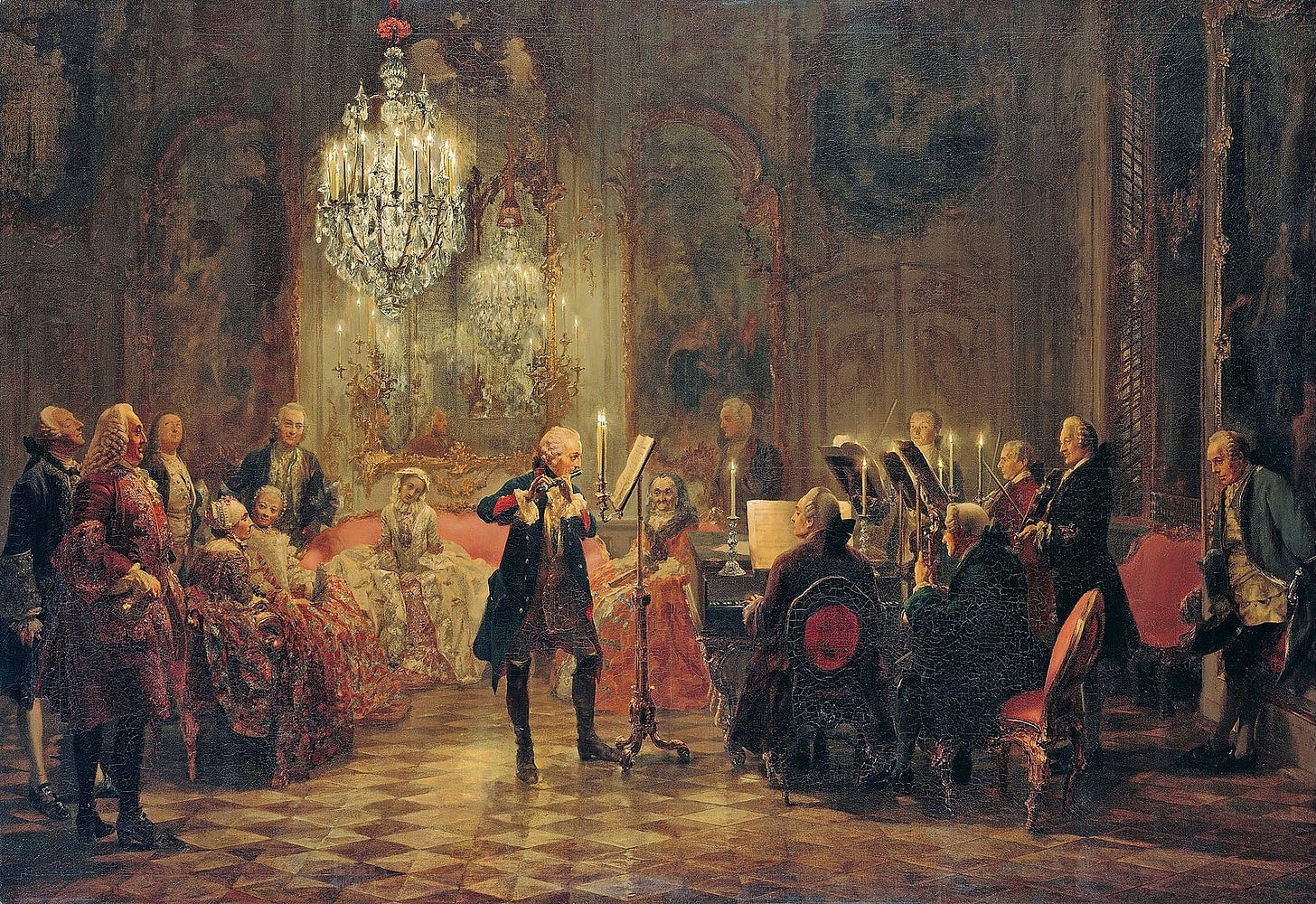Flautist
I thought of the countless themes and variations I was learning—aren’t the variations always more interesting and enjoyable than the original theme?
Whenever I play the flute, I think of the hours I spent in Mrs. Giles’ basement in slippers, echoing passages back and forth, laughing and talking far after our lesson time ended. My technique when playing is a direct echo of hers: rather than delicate notes that float above the staff, I find myself in the lower staff, inspiring an almost melancholy effect onto whatever piece I play.
Of course, I can play just as high and just as brightly as any flautist, and my repertoire won’t hide that skill from you. I clung to the flute as a teenager, I think, because it is the instrument to which I’d most liken my personality. I have always repeated and embellished and retold. I’ve changed stories to fit my audiences; I've gotten in trouble for saying things too loudly, or not gently enough. Whenever someone interrupts my story to tell me I exaggerate it, I think of the countless themes and variations I have learned—aren’t the variations always more interesting and enjoyable than the original theme? Isn’t drawing out a story theatrically for the amusement of your listeners just another cadenza that you write for their enjoyment?
I took those comments too much to heart. I worried that I was the living embodiment of the music I studied and learned: loud and overpowering, not blending in with the rest of the ensemble but soaring above in an inevitable solo (and not one anyone wants to hear on its own). Only flautists would be interested in listening to a repertoire that plays a theme, and then plays ever quicker and faster variations on it that end just where they began, only to play every other cadence, scale, and cadenza possible before returning to the original theme.
Who wants to listen to a flute? I asked myself that every day in college as I prepared for my senior recital. Strings are relaxing, pianists are mesmerizing, brass is triumphant, but flutes are just overwhelming. Although I know that there are many beloved classical pieces that heavily feature flute (Petrushka and The Magic Flute, for example), I knew that a program of Baroque, French, Twentieth Century, and Modern flute music is not offered at any concert hall. I loved each piece I was learning: they each conveyed emotions in increasingly difficult techniques that I struggled to perfect. One of the pieces did not even have accompaniment, and everyday I convinced myself more and more that no one would enjoy it without piano to soften its intensity.
Although I related to the flute, I never wanted to. All of the women I have most wanted to be like are wise, contemplative, and have a quieting, calming, reassuring presence to them. They are the women you can sit and talk with for hours by a fire, discussing philosophy and religion and art and life. They are not, as I have always been, loud and rambunctious. I’ve always wanted to be quiet, gentle, and calm, like the strings in an orchestra, blending in harmoniously with the group, but I have always known that I’m far more like the flute.
I never got to have a senior recital: there was no pianist who had the time or ability to play the accompaniments I needed. After graduating, it was more than a year before I picked up the flute again. I felt burnt out, snubbed, and overlooked. By the time I graduated college, I had taken eight years of private lessons with Mrs. Giles. She retired from teaching at Bethany when I graduated, and she retired from teaching me: she had taught me everything she could. Although I was upset on my own account, I was even more upset for her. No one ever knew how well she had taught me to play, how much she had influenced me and taught me to work hard. Her influence was so unknown that I remember mentioning to my advisor that my recital had fallen through and that I was disappointed by it, and his response was that he hadn’t known I played an instrument at all.
Every piece I was ever asked to play with an ensemble I sightread immediately, and I still struggle to accept compliments from anyone on my playing, because she taught me so much more than this. She taught me to play Bach, and Hindemith, and all the French romantics. She taught me the whole range of music written for the flute, and she taught me to be disciplined in practice, and she gave me her tone. How could I have only ever shown people that I am capable of playing a simple melody?
I have gotten quieter and calmer since college, but I have also come to love the role of being the outgoing, loud one in a conversation. I love the depth that the women I admire bring to every conversation, but I am the personality who can share and draw attention to that depth so that others can learn to appreciate it.
I still listen to the pieces I learned and meant to play, and I will always wish I could have played them for her to celebrate everything she taught me and to show everyone I knew how good of a teacher she was, but even without that recital, I am forever indebted to her for teaching me to love the instrument I played, and also to love the qualities she and I have always shared with our instrument. Perhaps that is why studying music is so important and so rewarding; its influence is threefold, from teacher, from instrument, and from the music itself.





Mrs. Giles was a gem, a great teacher, and a wonderful mentor. I treasure those memories of taking you to lessons and hearing her teach you to play.